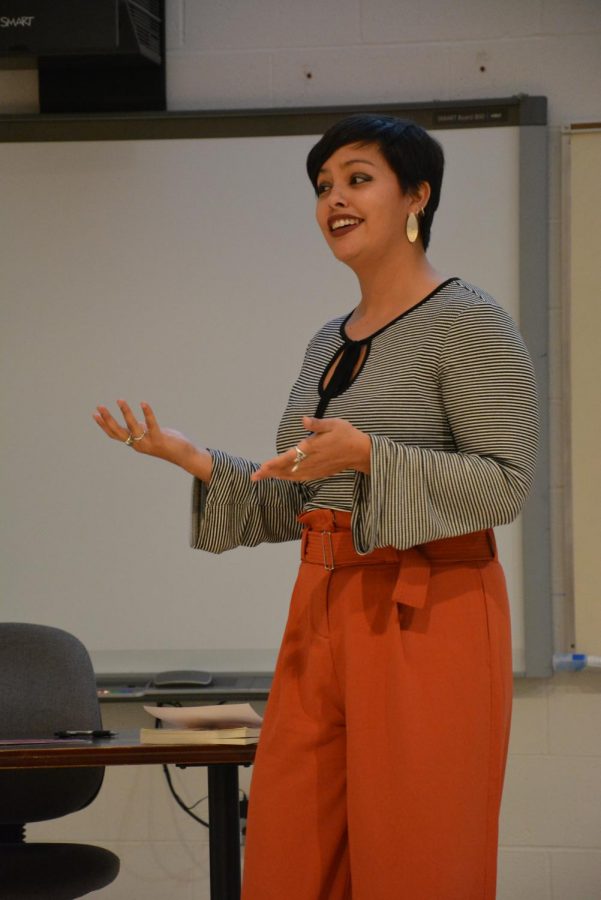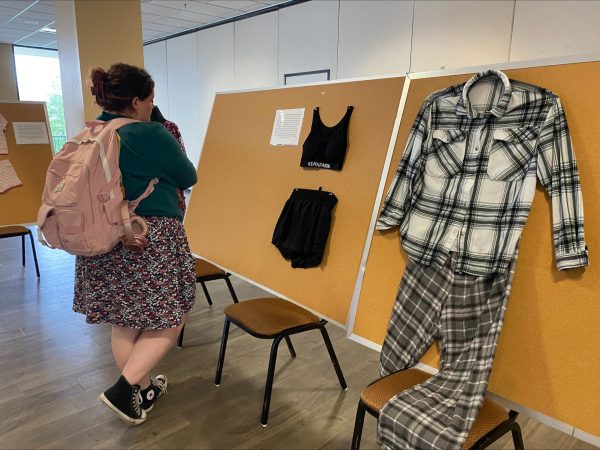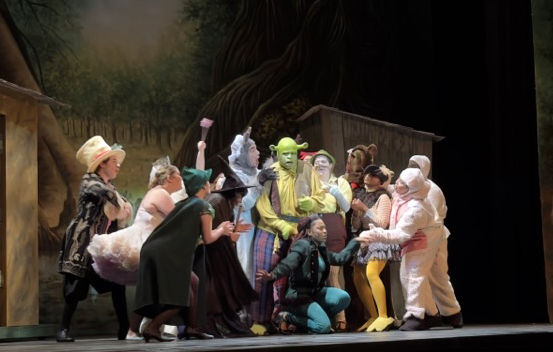ULM alumna discusses Mexican culture in novel
March 17, 2019
Before leaving her home in Wichita Falls, Texas to attend ULM in 2007, Alex Temblador had never put much thought into being Mexican-American. It was just something she was. But in Monroe, she began to think about her identity and what it meant to be Mexican.
Questions like: “How Mexican am I?” and “Do I have to know Spanish to be Mexican?” swirled around her brain and kept her awake at night.
For a long time Temblador didn’t meet anyone on campus who looked or talked like her. It was often a lonely experience.
That’s why when she discovered her passion for writing, she knew she wanted to explore her Mexican-American identity through her work. And that’s exactly what she did with her debut novel, “Secrets of the Casa Rosada.”
Last Thursday night, Temblador returned to ULM to read excerpts from “Secrets of the Casa Rosada” and participate in a question and answer session. The audience got the chance to learn more about Temblador’s novel as well as the writing and publishing processes.
“Secrets of the Casa Rosada” follows the story of Martha, a 16-year-old girl who was abandoned by her mother in Lerado, Texas. She was left with a family and culture she never knew she had.
“It’s kind of how I felt when visiting my family,” Temblador said.
Although all of Martha’s experiences are completely fictional, everything she feels stems from Temblador’s personal relationship with her Mexican-American identity.
“I looked at the lack of diversity in publishing and got really angry,” Temblador said. “My anger pushed me to write.”
An English graduate student, Jordan Green, was excited to learn about Mexican heritage at Temblador’s reading. He believed she could provide insight into the difficulties of growing up Mexican-American.
“Understanding a culture outside of my own is something I truly enjoy and encourage others to do as well,” Green said.
Like Green, Hayley Fisher, senior Spanish major, was drawn to Temblador’s reading for the Mexican aspects. For her, it is beneficial to learn as much about Mexican culture as she can. Fisher was also interested in hearing from a successful ULM alumna.
“I wanted to support a new author, especially being that she went to ULM,” Fisher said.
Temblador believes that representation in media is important. To tackle this issue, she made sure to include as much Mexican culture in her novel as possible. She hoped to help people like her feel more comfortable with their identity.
One topic Temblador discusses often in her novel is “curanderismo,” a traditional healing practice. Curanderismo is used in Mexico, South America, Central America and the Caribbean. The practice is passed down through generations, but is often looked at as superstitious.
“For example, if someone gives you malocchio, the evil eye, you get an egg, rub it all over yourself and maybe say a prayer to make sure you don’t get sick,” Temblador said.










